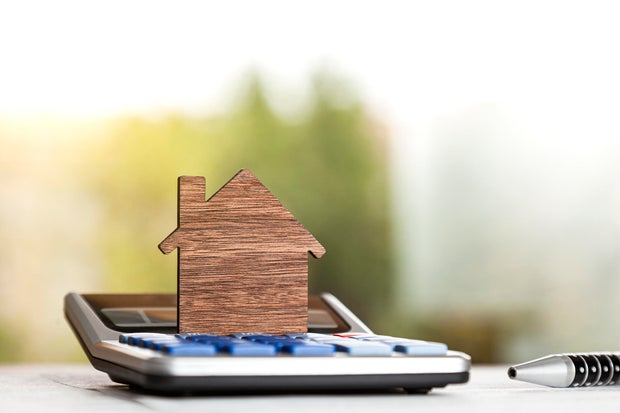Nando Vidal/Getty Images
If you’ve been contemplating a home purchase, you know that buying a home in today’s economic environment is a lot more expensive than it was just a few years ago. For starters, at about 7%, today’s mortgage rates are significantly higher than they were throughout 2020 and 2021. This has had a deep impact on borrowers, as higher rates mean steeper monthly payments and more in total interest over the life of the loan.
Home values have also increased significantly over the last few years due to increased demand, limited available inventory and other factors. In turn, locking in the best possible mortgage rate is crucial for those determined to buy a home right now. After all, even a small difference in your mortgage rate can mean tens of thousands of dollars in savings over the life of your loan.
And, with mortgage rates still shifting regularly based on economic data and the Federal Reserve’s moves, buyers need to act fast — and have a plan in place — if they want to secure the lowest rates available, especially during the tight windows when rates dip temporarily.
Explore your top mortgage loan options and compare rates now.
Want to lock in the best mortgage rate this month? Do these 6 things now
To optimize your chances of locking in the best mortgage rates this month, here are some helpful strategies to consider.
Get pre-approved early
One of the most important things you can do is get fully pre-approved for a mortgage as early in your house hunt as possible — and that’s not the same as just getting a pre-qualification. A pre-approval involves underwriting everything from your income, debts, assets and credit score.
Doing this will usually lock you in at the going rate for 60-90 days. So if rates happen to rise during that window, having a pre-approval will ensure you still get the lower rate that was available when you initially applied. Just keep in mind you’ll need to find and go under contract on a home before that pre-approval expires.
Learn about the top mortgage rates you could qualify for here.
Put more money down
In the current high-rate environment, putting down a larger down payment, typically 20% or more, could help you access the most attractive rates. Lenders view lower loan-to-value (LTV) ratios as less risky, so mortgage rates are often lower for buyers with more buy-in via their down payments. If you can swing it, boosting your down payment from the traditional 10% or 15% can often mean shaving 0.25% or more off your rate.
Maintain excellent credit
Your credit score is one of the biggest factors that mortgage lenders use to price your mortgage rate. Those with scores in the mid-700s and higher will qualify for the best rates, while scores in the 600s can add 1% or more to your mortgage rate compared to a borrower with top-tier credit. While you won’t be able to correct any major blemishes on your credit quickly, you should be sure to pay all bills on time, keep credit card balances low and avoid opening any new credit accounts or loans that could ding your score.
Look at all lender options
When rates are high, it pays to shop around and get mortgage quotes from multiple lenders including banks, credit unions, online lenders and mortgage brokers. After all, mortgage rates can vary by more than half a percentage point between lenders on any given day, so comparing the rates they are offering is crucial if you want to get the absolute lowest rate available. Luckily, there are online tools you can use to quickly get quotes from several different lenders to compare.
Consider an adjustable-rate mortgage
If you expect mortgage rates to come back down over the next few years, you may want to consider an adjustable-rate mortgage (ARM) instead of a conventional 30-year mortgage loan. That’s because ARM loans start with a fixed interest rate before becoming adjustable, meaning they can change at certain points based on the overall rate environment.
In a low-rate environment, an ARM loan can be risky, as rate increases in the future will cause the mortgage rate on your loan to increase, costing you more in terms of interest. But in today’s high-rate environment, it could make sense to choose an ARM loan, both to get the lower introductory rate and to access any potential lower rates in the future, should rate decreases occur.
Buy down your rate
In a high-rate environment, paying mortgage discount points to effectively buy down your interest rate can make a lot of sense. The cost of one mortgage point equals 1% of your loan amount, so on a $400,000 mortgage one point would cost $4,000 upfront.
That may seem steep when you’re already paying for other closing costs, but in return for paying a point or two upfront, you can lower your interest rate by 0.25% to 0.5%. And that can translate to hundreds of dollars in savings each month, depending on the size of your loan. Just be sure to crunch the numbers to see if buying points makes sense for you.
The bottom line
With mortgage rates still high, you may need to get creative and be calculated in how you go about locking in the best rates possible. Following the tips above is a good start, as these strategies may help put you in a position to shave vital fractions of a percentage point off your mortgage rate, keeping more money in your pocket over the long haul of your loan. And, in today’s expensive housing market, that could be the difference between being able to afford your dream home or not.


